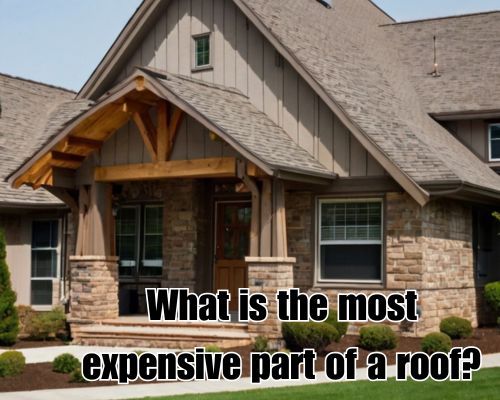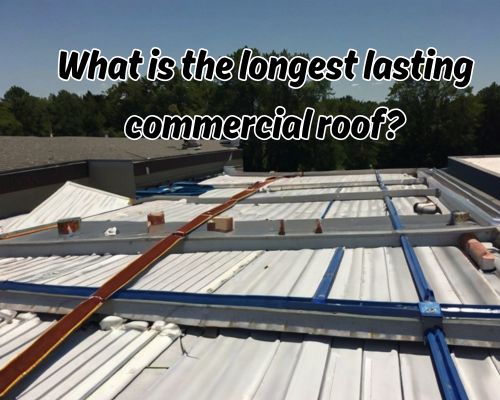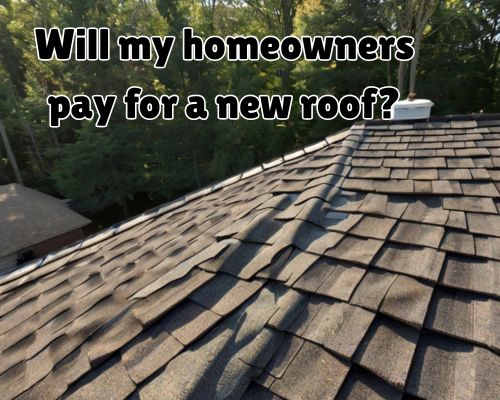A Deep Dive into Roofing Costs in New Jersey
When homeowners in New Jersey begin exploring roof replacement or installation, one common question often arises: What is the most expensive part of a roof? Whether you’re in Newark, Princeton, or along the Jersey Shore, understanding which component drives up roofing costs can help you budget smarter and avoid sticker shock. With CJ Commercial Roofing NJ, we break down the key cost contributors, integrate local insights, and explain why your roof’s complexity—and not just materials—could be the biggest budget buster.

Roofing Costs: Beyond Just Shingles
When most New Jersey homeowners think of roofing costs, they immediately think of materials like asphalt shingles, metal panels, or clay tiles. However, roofing systems are made up of several integrated parts, each serving a specific function. And while materials do matter, the most expensive part is often not the outermost layer, but what’s beneath or around it.
So, what is the most expensive part of a roof?
In most residential cases, the roof structure (framing and decking) and labor-intensive features like valleys, dormers, and chimneys are the costliest components. In some situations, flashing and underlayment upgrades, especially in high-wind or storm-prone regions of New Jersey, can also hike up costs.
Top 5 Most Expensive Roofing Components in NJ
1. Roof Structure & Framing
If your roof needs structural modification or complete reframing—due to age, storm damage, or an attic conversion—you’re looking at the most expensive aspect of the project.
- Why it’s costly: Skilled labor, engineering expertise, and lumber prices.
- NJ context: In older homes in towns like Montclair or Trenton, aged roof frames often require reinforcement or total replacement due to rot or sagging caused by snow loads and humidity.
Estimated cost: $12 to $20 per square foot, depending on complexity and material.
2. Complex Roof Designs
Roofs with features like multiple valleys, steep pitches, hips, dormers, skylights, and chimneys drive up labor and material costs significantly.
- Why it’s costly: These architectural elements require custom flashing, careful shingle cuts, and extensive labor time.
- NJ context: Victorian homes in Cape May or colonial-style properties in Morristown often have such ornate rooflines.
Estimated cost bump: 30–60% more than simple gable roof designs.
3. Premium Roofing Materials
Luxury materials like slate tiles, clay tiles, copper flashing, or standing seam metal panels are also among the priciest.
- Why it’s costly: These materials are not only expensive per square foot but require specialist installation.
- NJ context: In upscale neighborhoods like Short Hills or Saddle River, homeowners may opt for premium roofing to enhance curb appeal and durability.
Cost breakdown:
- Slate: $15–$30/sq ft
- Copper flashing: $20+/linear foot
- Standing seam metal: $10–$17/sq ft
4. Labor in High-Cost Areas
Labor accounts for 30% to 50% of total roofing cost in New Jersey. The cost varies significantly depending on the zip code.
- Why it’s costly: Prevailing wages, union labor in urban areas like Jersey City, and licensed contractors for insurance-compliant jobs.
- NJ context: Labor in Bergen or Hudson counties is notably higher due to urban density and contractor demand.
Hourly rate: $60–$100/hour per roofer, with multi-person crews working simultaneously.
5. Tear-Off and Disposal
Tearing off an old roof (especially multiple layers) and hauling it away can add thousands to the final bill.
- Why it’s costly: Dump fees, labor-intensive work, and potential for surprise repairs (e.g., mold, wood rot).
- NJ context: In areas with environmental compliance rules, like Essex or Somerset counties, disposal must meet local code—raising costs.
Add-on cost: $1,500–$3,000+ for an average-size roof
Hidden Expenses That Add Up
While the above elements are the major line items, savvy homeowners should not ignore supporting components that—when upgraded—add hidden costs:
- Synthetic Underlayment vs. Felt Paper
- Synthetic is more durable and water-resistant, but costs double.
- Typical NJ pricing: $0.25–$0.50/sq ft.
- Ice and Water Shield Membrane
- Mandatory in many parts of northern NJ to protect against ice dams.
- Adds $500–$1,000+ depending on coverage area.
- Ventilation Systems
- Ridge vents, soffit vents, and fans improve energy efficiency and prolong shingle life.
- Expect an additional $300–$1,200 depending on system.
Local Roofing Trends in New Jersey
Asphalt Still Dominates, But Metal is Rising
According to local roofing contractors across New Jersey—from Edison to Cherry Hill—asphalt shingles remain the most popular due to affordability and reasonable longevity (15–30 years). However, metal roofing is gaining traction for its energy efficiency and lifespan (40–70 years), especially in eco-conscious neighborhoods like Princeton or Asbury Park.
Insurance & Storm Repairs Impact Cost
New Jersey homeowners in coastal towns like Atlantic City or Long Branch must also factor in hurricane-rated upgrades, such as impact-resistant shingles, reinforced flashing, and storm clips. These increase material and installation costs—but may qualify for insurance discounts.
Permit Costs & Regulations
In municipalities like Hoboken or Elizabeth, roof replacements must comply with local building codes, which may require structural inspections or engineer approvals—particularly when altering roof pitch or installing solar panels.
Typical permit cost: $200–$1,000 depending on project scope and municipality.
How to Control Costs Without Sacrificing Quality
- Choose contractors wisely
Get multiple quotes and ensure they’re licensed and insured in NJ, see CJ Commercial Roofing NJ. Look for GAF or Owens Corning certified installers. - Bundle projects
Installing gutters, skylights, or solar panels at the same time can save on labor costs. - Consider financing
Many NJ roofing companies offer low-interest financing or partner with local credit unions. - Opt for architectural shingles
They cost slightly more than 3-tab but last longer and boost curb appeal—without venturing into premium material pricing.
Final Thoughts: What Is the Most Expensive Part of a Roof?
In New Jersey, roof structure modifications and complex architectural features usually claim the title of “most expensive part of a roof.” While material choice plays a major role, don’t overlook the labor, design, disposal, and regulatory requirements that influence your final bill.
If you’re planning a roof replacement in NJ—whether you’re in bustling Newark, historic Princeton, or serene Ocean County—get a professional inspection to uncover hidden structural issues early. Knowing what to expect upfront will empower you to make smarter roofing decisions that balance cost, quality, and longevity.

